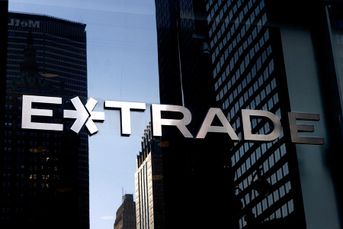Fidelity blocks opening trades on several ETF products, citing suitability concerns
The fund giant wouldn't say if regulatory pressure compelled it to impose the practice.
Fidelity Investments’ brokerage is restricting opening transactions in some exchange-traded products, as federal regulators eye a crackdown on ETFs considered too risky for both investors and the markets.
But the fund giant says its practice to bar retail customers from buying the products — which industry observers call unusual — stems from suitability concerns, rather than regulatory pressure.
In response to a story in Barron’s detailing the practice, Fidelity spokesman Robert Beauregard said in an e-mail: “As part of our responsibilities to our retail account holders, we continually review security products being offered to our retail brokerage customers to ensure that they are at least generally suitable for some customers, and that we are able to support them appropriately.”
For Fidelity customers, that could mean exchange-traded products that exceed a 10% tracking error on their benchmarks or when they have traded at a 10% or greater discount or premium the previous 30 days.
Other red flags for Fidelity:
1. Whether there are excessively complex or unique features, or unusual risks, and whether comparable securities that are less complex may be available;
2. Liquidity in the market place;
3. Quality and ease of access for retail customers to material information available about the securities; and
4. Fees associated with the product.
Fidelity notes that investors can always close a trade on those products. While Fidelity wouldn’t give a list of the products banned, one example is AccuShares Spot CBOE VIX Up (VXUP), a thinly traded play on rising volatility. The fund has fallen 95% the past 12 months, charges 0.95% in annual expenses, and has lagged the S&P 500 VIX Short Term Futures total return index by more than 20 percentage points year to date, according to Morningstar.
Another: iPath S&P GSCI Crude Oil Total Return ETN (OIL). The exchange-traded note has had an average premium to NAV of 4.92% this year, with a high premium of 11.3%, Morningstar says.
Barclay’s Bank PLC, the creator of the oil ETNs, declined to comment for this story, but said that it warned investors of high premiums on its funds in January. UBS AG, sponsor of ETRACS Daily Long-Short VIX ETN, another exchange-traded product currently blocked by Fidelity, also declined to comment. AccuShares did not respond to requests for comment.
The Securities and Exchange Commission is pondering sharp restrictions on funds that use excessive leverage. Fidelity wouldn’t comment on whether those proposed rules prompted the clampdown on some exchange-traded products.
“They hardly need to have the SEC as an excuse,” said Dave Nadig, vice president at FactSet. “Levered and inverse has been the subject of numerous Finra warnings already. Most adviser groups have a list of restricted products, what’s unusual is that this is retail/discount. It represents a level of oversight you generally don’t see in that environment, for sure.”
And, in fact, most discount brokerages don’t stop investors from buying exchange-traded funds. At Schwab, for example, the company will occasionally warn investors that a particular ETF might not be appropriate for the average investor, but won’t keep the investor from making the purchase. One example: A lengthy warning about inverse or leveraged ETFs that pops up.
Vanguard’s brokerage arm uses a similar approach. “In regard to Exchange Traded Products broadly, those with complex investments strategies are flagged and a detailed disclosure alerting the investor of risks involved is provided,” said Vanguard spokesperson David Hoffman. “The investor must positively consent / acknowledge the disclosure before placing the trade on the phone with an associate or via the web.”
TD Ameritrade apparently doesn’t stop investors from placing trades in complex products, either. “Our company is aware of the discussion surrounding exchange-traded notes and exchange-traded funds,” TD Ameritrade spokesperson Kim Hillyer said in an e-mail. “As a firm, we are committed to client advocacy and looking after the best interest of our clients, which includes careful monitoring of issuers’ ETF and ETN products and our available selection of investment products.”
Brokerages stressed that they offer extensive educational materials about exchange-traded funds and notes. Others nudge investors toward vetted investments. Schwab, for example, offers an ETF Select List of low-cost ETFs that score well on cost and index tracking, among other variables.
“This seems to be a first step to a higher fiduciary standard to shepherding clients away from products with profound structural unreliability,” said Jim Lowell, editor of Fidelity Investor, a newsletter. “It strikes me that Fidelity is really upping the ante in terms of really taking a fiduciary interest in safeguarding clients. No one likes to be told they can’t do something with their money, but sometimes it is good news that big brother is watching.”
Learn more about reprints and licensing for this article.








